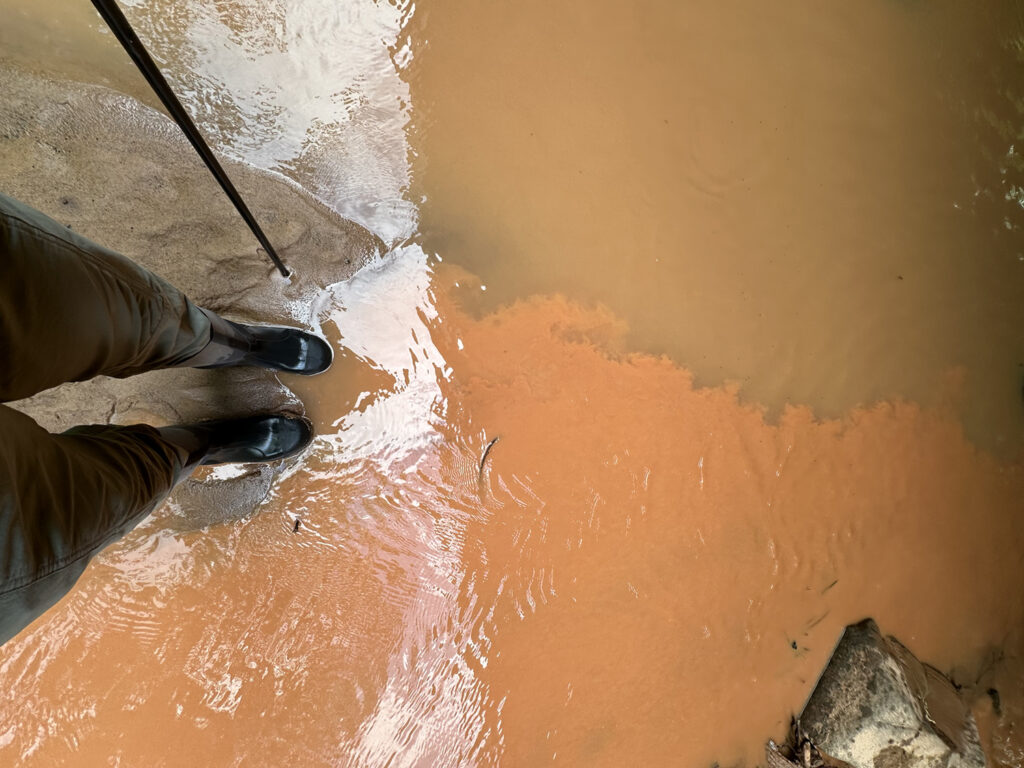Current Action Alerts
Make your voice heard!
Your voice can make a difference in the fight to stop pollution. Sound Rivers’ Action Alerts are set up to make it super-easy for you to weigh in on what matters to you. Since you’ve landed here, we already know you care about the health of your waterways — waterways that belong to YOU, not polluters. Here’s an opportunity to make your voice heard, whether you’re weighing in on permit being considered, ineffective regulations contributing to pollution or legislation that will codify harms to your waterways into law.
Sound Rivers’ Action Alerts are pre-written, but you can always add your own comments to the draft message, or even delete the draft message altogether and make it wholly your own. All that’s needed is your name and email address (occasionally, an Action Alert will ask for your physical address, solely to identify which elected official your email will be sent to).
If Sound Rivers has not created an Action Alert for any listing below, contact and other relevant information is available.
Howard’s Place rezoning, Durham
Durham council to vote on another development

Please contact Durham City Council and tell them to oppose the Howard Property rezoning proposal (Z2300011) — another sprawling construction project along the imperiled Lick Creek.
The Howard Property rezoning proposes to construct up to 499 residential housing units on 86.4 acres of land adjacent to Lick Creek and the protected Falls Lake drinking-water watershed. The project area includes five jurisdictional streams and parts of the North Carolina Natural Heritage designated natural area called the Middle Lick Creek Bottomlands, which contains unique habitat, plant, and fish species.
The Lick Creek watershed has already suffered immensely from development pressure, and ongoing water quality sampling conducted by Sound Rivers demonstrates that sediment remains a concerning pollution crisis in Lick Creek. Durham City Council should require developments in this area to commit to strong environmental conditions to ensure that no more destruction is caused in this environmentally sensitive area. We are asking Durham City Council to vote ‘no’ on the Howard’s Place proposal unless strong environmental conditions are adopted to the unique forest habitat and water resources on site and downstream.
The council will vote on the rezoning proposal at its meeting scheduled for 7 p.m. on May 5. More information can be found here.
Durham: Lick Creek
Durham must adopt stronger ordinances to stop sediment pollution

We need your help to protect Durham’s water quality!
Despite new regulations, new sprawling developments continue to pollute Durham’s waterways, and the Falls Lake drinking water supply downstream.
Large-scale land clearing developments are turning Durham’s rivers a “tomato soup” shade of muddy. For over two years, in partnership with community members, Sound Rivers has been documenting sediment runoff from active construction sites polluting streams and creeks. Southeast Durham’s most heavily developing Lick Creek watershed has regularly seen levels of sediment ten and twenty times over the state of North Carolina’s standard for healthy waterways. Ellerbe Creek at the heart of Durham has also gained attention for running orange since the start of this year due to runoff from a large development at its headwaters. All of the waterways in Durham’s Neuse River basin flow directly into Falls Lake, a drinking water supply for half a million total people.
The problem is that Durham’s Sediment and Erosion Control regulations have not yet caught up with the rapid scale of growth. In response to public outcry about Durham’s tomato soup creeks, Durham officials have adopted some measures to strengthen S&EC practices. However, we have not seen evidence that these new measures are working to prevent mud from polluting Durham’s public waterways.
We need your help to tell Durham’s City Council that enough is enough — Durham must adopt stronger protections for its waterways before annexing more large-scale land clearing developments in its sensitive watersheds! Lend your voice to this call to action!
Write your email to Durham city councilmembers here!
Read more about this issue on this page.
Want to learn more about sediment pollution in the Neuse and Tar-Pamlico watersheds? Neuse Riverkeeper Samantha Krop breaks the problem down in our Sound Rivers: Riverkeeping Tales from the Neuse & Tar-Pamlico” podcast. Look for the episode, “Muddied Waters” here. The podcast can also be found by searching for keyword “riverkeeping” on Apple Podcasts, Spotify and Amazon Music.
